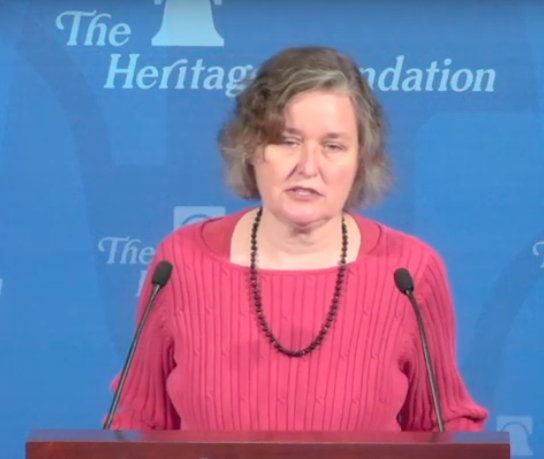Women Prioritizing Relationships over Careers isn’t Sexist, says Academic

On February 15, the Heritage Foundation teamed up with the Claire Boothe Luce Center for Conservative Women to explore the issue of women’s roles in society. The featured speaker was Elizabeth Kantor, a Ph.D. in English from the University of North Carolina,Chapel Hill, author ofThe Politically Incorrect Guide™ to English and American Literature and The Jane Austen Guide to Happily Ever After. Kantor argued that women should prioritize relationships over their careers, a proposition that is deemed ‘sexist’ in our current day and age.
Kantor disputed the claim of feminist Sheryl Sandberg that our society does not have true gender equality because many CEOs and members of Congress are men and more women run households than men. She argued instead that women who prioritize relationships over careers are making a better choice than women who do the opposite. She supported this contention by stating that “Relationships and people are more important than money and power,” adding that “Women have a special, natural capacity for relationships and making connections between people,”an idea opposed by modern feminists.
Kantor argued that social science was on her side regarding the aforementioned issue. For example, it has been observed that women in countries that have achieved optimal gender equality tend to gravitate away from traditionally male jobs. She also appealed to literature because “…if it’s great literature— f it’s Jane Austen or William Shakespeare–then its stock and trade is brilliant insights into the things that matter most to human beings.”
In Jane Austen’s Pride and Prejudice, the character Mr. Darcy says: “A lady’s imagination is very rapid. It jumps from admiration to love, from love to matrimony in a moment.” The fact that women think about relationships more often than men shows a vulnerability, but also a strength. Kantor said that this trait in women could help our society because “…the world today is in desperate need of women’s expertise at making connections and nurturing relationships.”Shakespeare wrote in Sonnet 116: “Love’s not Time’s fool, though rosy lips and cheeks within his bending sickle’s compass come…” The point here is that time takes away certain aspects of one’s life, but love can remain within a person for a lifetime.
Kantor concluded her speech by saying: “…for most of us, marriage is the best chance at learning what it’s really like to love another person.”She also advised against divorce, and said “…that’s kind of the point of the whole thing(marriage)…to stop being such a terrible person and figure out how to love somebody who often is a terrible person…”




